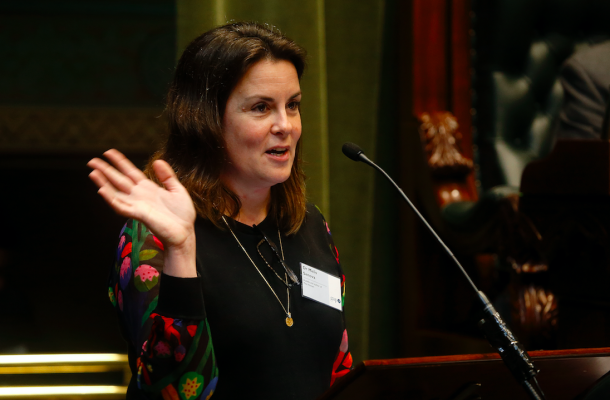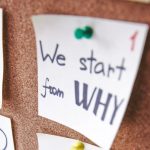Why meta skills matter

I want to discuss the concept of meta-skills and the importance of “consciously evolving your own mindset” for many reasons. While these ideas apply to everyone, my focus is on the latter parts of person’s education journey, after they graduate from university with a shiny degree.
When people finish their university education, they don’t just come out with a degree, they begin a career and enter into an identity. When you ask someone what they do, they often answer with a statement that describes who they are, not what they do…
“I am a doctor”
“I am a nurse”
“I am a teacher”
In my case, I am a human centred designer (whatever that is…)
Their identity becomes enmeshed with their profession and, in a world where the idea of a lifelong profession is dying out and we look at more porous transitions between vocations, we need to think about what it actually takes to transition from one thing to another.
The government acknowledges there are gaps in our education system, but there is also a growing gulf between the course of human evolution and technological advance. We slowly evolved as humans over a long period of time, while the growth of technology has accelerated greatly in living memory.
Today’s rate of technological evolution is a billion times faster than the rate of change in our DNA. To live in a world increasingly dominated by technology, we have to develop the meta-skills required to understand it, and harness it to our needs.
Welcome to the Anthropocene
In his book Metaskills, my friend and collaborator Marty Neumeier, identifies four stages in the development of human technology. Stage 1 saw the invention of language perhaps 50000 years in the past, while stage 2 was the invention of writing 5,000 years ago.
The third stage was the invention of science, which is particularly exciting as it was a “meta-invention”, in that the invention of science spawns new inventions out of itself.
The fourth stage is the one we’re living through now – The invention of self alteration. Humans are now able to alter our own “source code” through gene splicing, genetic engineering and gene therapy. The significance of this is startling because we are ending our 4 billion year old history of Darwinian evolution to take the future shape of our species into our own hands.
This is a very important topic in the current epoch of Earth’s adventure. We are living in the Anthropocene, the point in time that human activity has been the dominant influence on climate and the environment.
It is vital that we intentionally direct the application of 21st century skills like STEM through meta skills, because it is the skills that sit behind the content and the more intangible aspects of our intelligence that direct the application of knowledge.
Meta skills are an abbreviation for meta-cognitive skills. These skills are transferable from situation to situation as they determine ‘how to be’ rather than the ‘what to do’. They provide our guiding principles, rather than determine specific steps.
The Post-Industrial Revolution
The industrial revolution brought about many positive changes for society, and, perhaps now in hindsight, some not so positive ones.
The operating model for the 20th century was the factory, and the education system itself became a factory to churn out the graduates the economy required. Education today remains a very successful implementation of that model.
It is a streamlined process based on maximum throughput to produce the largest number of graduates with maximum efficiency. It reduces the ratio of teaching staff to students as far as it can, and relies on standardised testing that is easy to grade and compare.
This is not a criticism, but it is increasingly outdated. This type of education produces graduates who excel in measurable areas of intelligence, but are not particularly adept in the meta skills of creativity, intuition, emotional maturity and agility and resilience.
However, as computers and algorithms take over more mundane tasks, these are the very skills we need for our future.
Sir Ken Robinson doesn’t blame students for their shortcomings. Businesses may want more creative graduates but
“Complaining that graduates aren’t creative is like saying, ‘I bought a bus and it sank.’”
Ray Kurzweil is a leader in the field of artificial intelligence. He predicts that humanity will reach a point of “singularity” by 2029 – which he defines as the moment that artificial intelligence overtakes human capacity.
When asked to speak to the aspect that keeps us inherently human when compared to the intelligence we’ve created, he observed that:
“Ours is the species that inherently seeks to extend its physical and mental reach beyond our current limitations.”
The process which allows us to extend our physical and mental reach beyond our current limitations is the act of learning. In the age of artificial intelligence, human education is going to be more important than ever.
Self-Directed Growth
In the world we appear to be rushing to create, there are certain meta-skills we need to teach, beyond the content knowledge of science, tech, engineering and mathamatics.
Just as scientists can engineering our own genome, individuals must be able to re-engineer their own mindset to compete.
What I’ve learnt over the many years of studying people and designing for them, is the importance of a few essential skills that allow people to evolve their own mindset and cope with change. They include:
1. Self Awareness – the ability to observe oneself in hindsight, and even in real time.
2. Self Reflection – the ability to objectively reflect on that observation of self and draw conclusions from it.
3. Self Directed Growth – the belief that individuals can use that knowledge to shape their personal growth in terms of skills and capacity.
On top of the skills in science, technology, engineering and mathematics we are teaching our children, we also need the meta-skills to make best use of them, and understand ourselves and each other. These include
1. The ability to feel – including intuition, empathy, social intelligence and communing with nature.
2. The ability to imagine and apply that imagination to the real world through creativity.
3. The ability to think holistically and tolerate complexity and ambiguity, rather than in black and white terms.
The Institute for Human Progress
There is much to be done in this arena, and so I propose a practical step that will help us find the answers – the creation of an “Institute for Human Progress”.
This organisation would help us examine the key aspects of our humanity in this new age, and what it means to be a human in the 21st century. More specifically it would help the education system give young Australians the capabilities they need to transfer between jobs and professions, and perhaps from one social paradigm to another.
We all know that massive economic, social, environmental and cultural shifts are coming, even if we cannot entirely predict their nature or consequences. Whatever their nature, we will need the ability to shift our understanding of ‘how to live’ from one way to another.
Millions of years of evolution have ensured that our bones get stronger with use, and that our brains remain plastic if we keep using them. So we can do this if we only choose to try. Instead of relying on luck or happenstance, we can improve our chances of success by becoming the most resilient, adaptable and adept generation in history.
Policy makers in Australia have understandably pushed the STEM agenda in the hope that STEM graduates will revive the national economy as well as compete in the global job market. However, this alone is not enough to set our strategic direction.
The world will not need human robots if real robots are all around us. The world needs creative people, with exceptional abilities in the metaskills I’ve outlined. The current model of education is not going to get us to where we need to go.
I believe a new world is trying to be born, a world which requires and encourages greater creativity, a higher purpose and deeper fulfillment. To bring this world into being, we’ll need a new set of abilities that aren’t yet taught in schools.
An Institute of Human Progress will not be enough in itself, but it could be the first step in charting this new direction.
Melis is the founder of strategic design consultancy, Huddle and author of This Human. She also founded the Huddle Academy, a school focussed on building creative problem solving capabilities for individuals and organisations.














